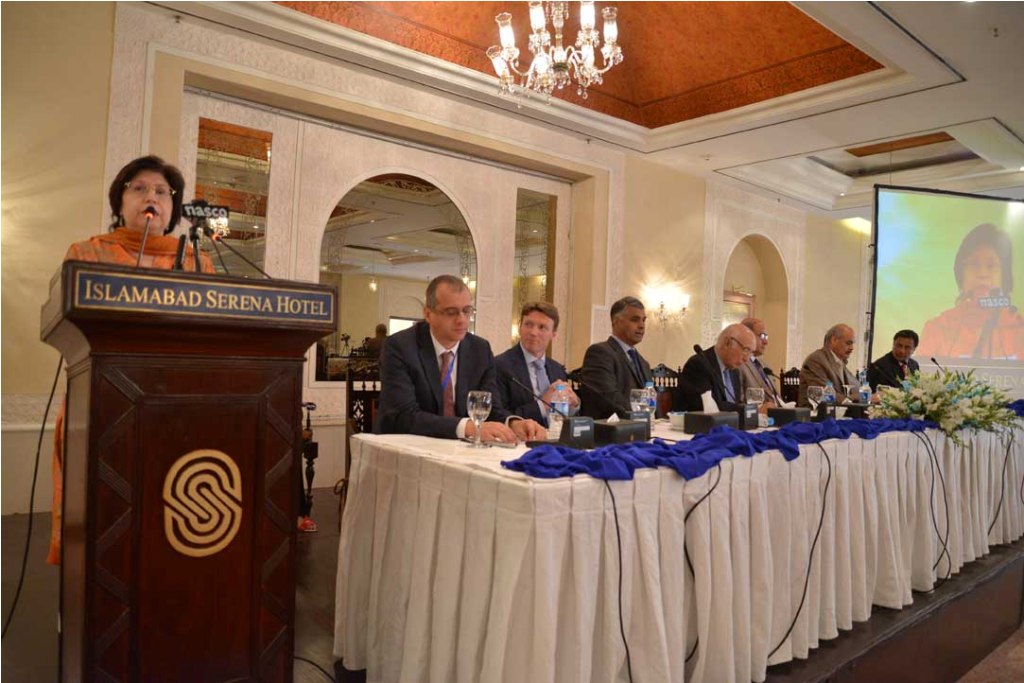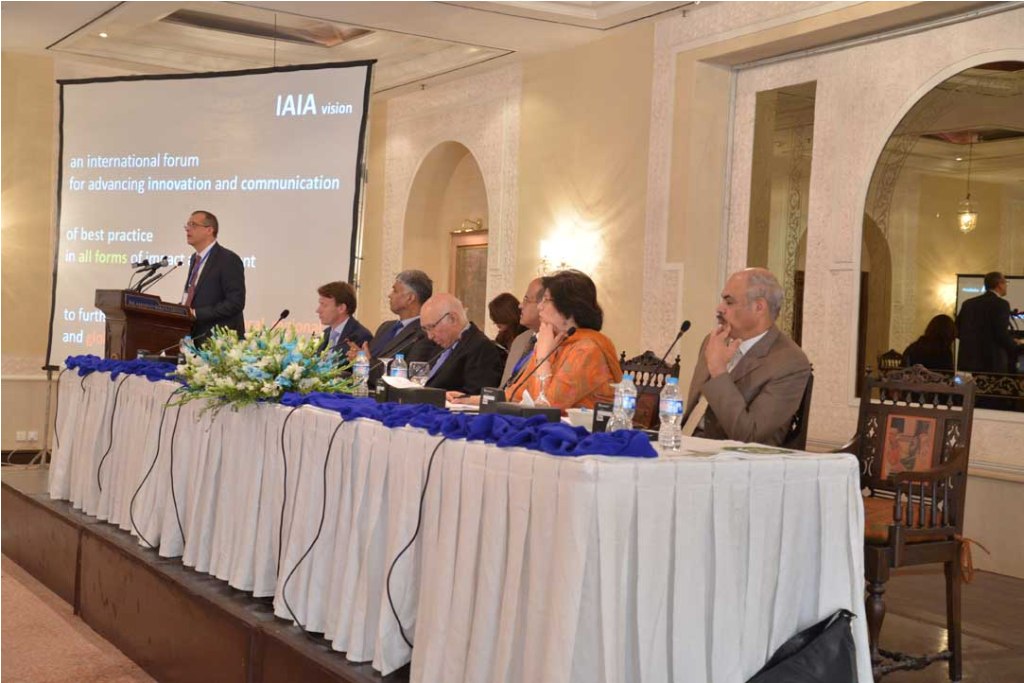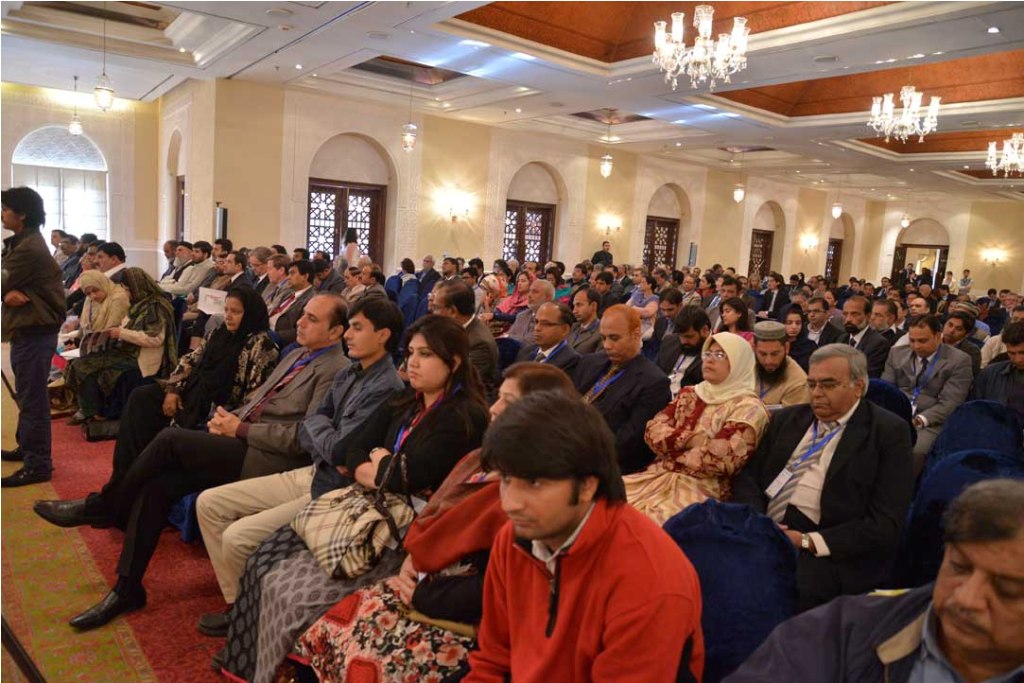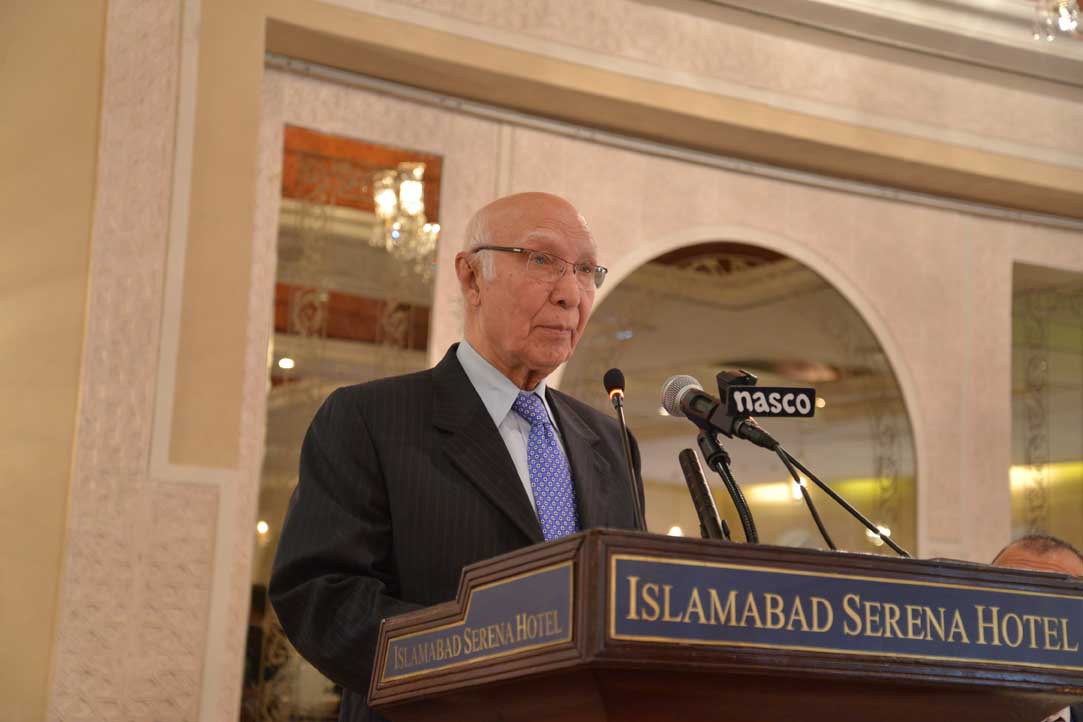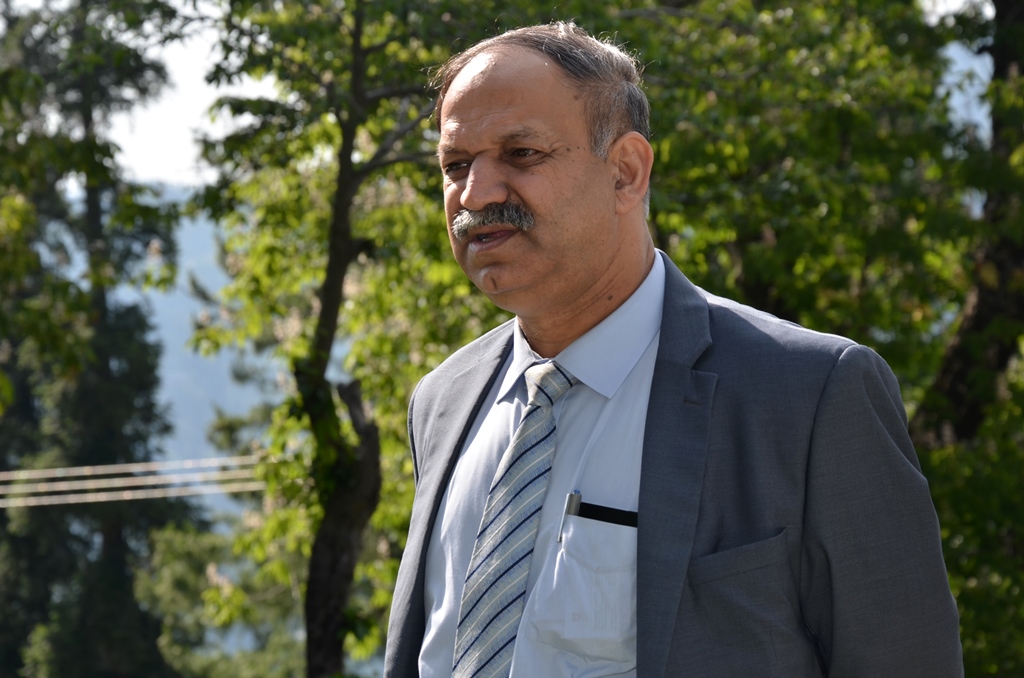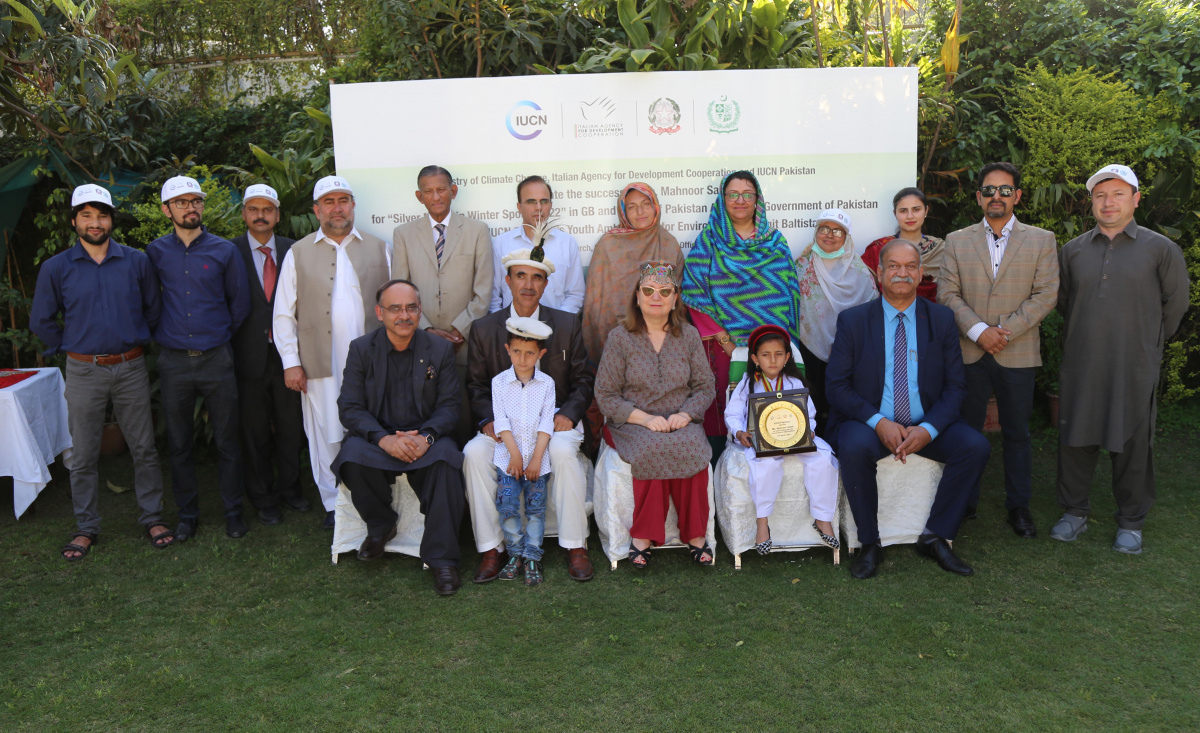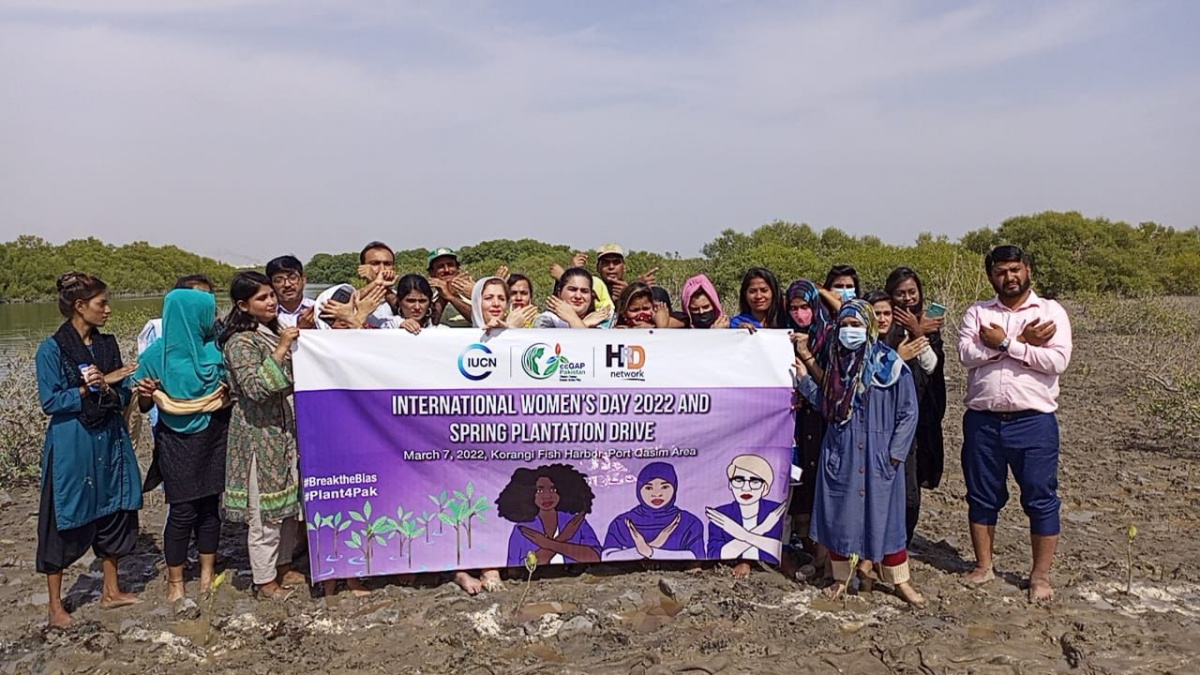Effective, transparent environmental impact assessment key to sustainable development in Pakistan, region
Pakistan hosts SAEAC 2013
Effective, transparent environmental impact assessment key to sustainable development in Pakistan, region
Conference calls for steps towards resilience in the face of rapid climatic changes
The South Asian Environmental Assessment Conference (SAEAC13)kicked off today in Islamabad, bringing together a wide range of national and international experts in the field of environmental impact assessment (EIA) from South Asia, Southeast Asia, Europe and North America to discuss and share best practices in EIA, and push forward the concept of Strategic Environmental Assessment (SEA).
Organized jointly bythe Government of Pakistan and IUCN, the Conference that has the theme ‘Raising the Bar on Regional Cooperation’ is also being attended by representatives of government, civil society and the private sector.
The two-day Conference is a major initiative of the National Impact Assessment Programme (NIAP) –a joint programme of the Government of Pakistan and IUCNthat aimsto contribute to sustainable development in Pakistan by strengthening EIAs and introducingthe concept of SEAinto Pakistan’s development planning process. The programme is being funded by Embassy of the Kingdom of the Netherlands (EKN) and technical assistance is being provided by the Netherlands Commission for Environmental Assessment (NCEA).
Experts are now calling for a shift from solely looking at Environmental Impact Assessments on individual projects to the idea of Strategic Environmental Assessment which builds environmental assessment into a nation’s policy and programmes, and considers individual projects in the context of the country’s full development agenda, rather than on a case-by-case basis.
EIA usually relates to environment assessments of the projects that aim to integrate environmental considerations into the earliest stages of policy, plan and programme development. EIA is one of several tools available for improving the way in which decisions are made in order to promote sustainable development outcomes. SEA helps ensure that environmental considerations play a more effective role in policy development. Because the linkages between environmental, social and economic factors are better understood and addressed, policies, plans and programmes have a greater likelihood to contribute to sustainable development.
SEA calls for the integration of the principles of sustainable development into a country’s policies and programmes and other strategic actions.
The Strategic Country Environmental Assessment Report of 2007 estimated that environmental degradation was costing the Pakistan economy 6% of the GDP or 365 billion rupees per annum – with greater likelihoods the figure has increased since then. Sustainable development approaches recognize this cost, and ensure that the interests of economy, society and the environment are all taken into consideration – emphasizing long-term viability of both human communities and natural ecosystems over short-term economic gain.
Speaking at the inaugural ceremony, the chief guest, Mr. Sartaj Aziz, Adviser to the Prime Minister on National Security and Foreign Affairs, said, “the most important challenge is to strike a balance between rapid development and maintenance of environmental integrity - use of environmental impact assessment is one such important step. Pakistan took this step some 30 years ago by making it into a law. In addition, we are party to many international treaties and conventions related to the environment. And for implementing these treaties and conventions, we have enacted appropriate legislations, and established and strengthened many institutions raging from basic research to applied technologies.
Speaking on the occasion, IUCN Regional Director Asia, Aban Marker Kabraji, said that “SEA is evolving rapidly as the world responds to escalating challenges relating to natural resource use and development planning. The Conference represents an important initiative in helping the region to stay ahead of the curve in this area, using the best techniques and science available to manage its particular development challenges.”
“Although we may be geographically divided, our issues, especially environmental, are shared -- be they climate change, trans-boundary air, or water pollution. Despite our differences, it is clear that our future survival depends upon a common approach,” noted Ms. Kabraji.
Ms. Kabraji added that IUCN was interested in scaling up the experiences of the National Impact Assessment Program to the regional level, and in working with other partners and governments on similar programs.
The Conference included technical sessions and a poster competition at which students from different art schools depicted the concept of environmental degradation and environmental assessment processes.There is in particular a technical session on media where key media personnel and journalists will share their ideas and debate the role media could play in EIA and SEA awareness and highlighting how environmental degradation was linked to poverty and other social issues.
Mr. Marcel-De Vink, Ambassador of the Netherlands, said that “Pakistan and the Netherlands share a long history of cooperation in agriculture, education and human rights and environment. The environmental cooperation with Pakistan covers many aspects of nature that have been well accomplished. He said that after the 18th Amendment the National Impact Assessment Programme hasassisted theprovinces in drafting of the Environmental Legislation Bill, which the Balochistan Government has approved and other provinces are in the process of finalizing.
Mr. Raja Hasan Abbas, Secretary Climate Change Division, observed that Pakistan was witnessing an unimaginable rise in climate-induced catastrophes. “SAARC calculates that in the past 40 years, there have been 1,300 disasters, killing close to a million people and affecting another 2.4 billion lives. In 2011 alone, approximately 90% of the massive USD 270 billion global economic loss was in South Asia,” he disclosed.
He added that like most other South Asian countries, SEA was currently not a legal requirement in Pakistan and steps were underway to understand and explore SEA, as it is increasingly becoming a necessity in the wake of the adverse effects of climatic changes.
Mr. Javed Malik from the Planning Commission of Pakistan said the Vision 2025 of the government envisaged a strategy of sustained and inclusive growth aimed at adopting a growth process which would meet the objectives of both sustainability and inclusiveness.
For further information or interviews, please contact:
Danish Rashdi
Manager, Communications
Cell: 0303-3335769
Email: danish.rashdi@iucn.org
